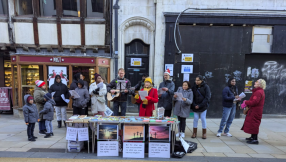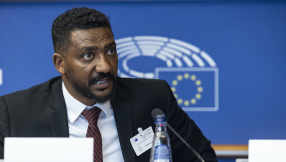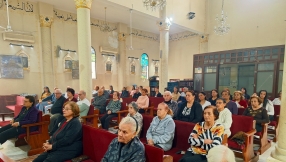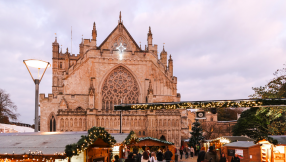Pope Francis has urged people to see their differences as a source of richness and not of danger in his Christmas message to the world.
Delivering the traditional 'Urbi et Orbi' message to around 50,000 people in St Peter's Square, the Pope called for 'fraternity among people with different ideas, yet capable of respecting and listening to one another'.
In an apparent reference to the debate over migration and nationalism in many countries around the world, the Pope said God wanted 'love, acceptance, respect for this poor humanity of ours, which we all share in a great variety of races, languages, and cultures'.
'Our differences, then, are not a detriment or a danger; they are a source of richness,' he said.
He touched on conflicts around the world, calling for a political solution in Syria and an end to fighting in Yemen where he said the people had been left 'exhausted by war and famine'.
In Ukraine, which has had an increasingly tense relationship with Russia, he appealed for 'a peace respectful of the rights of every nation'. For Africa, he prayed that there would be 'a new dawn of fraternity to arise over the entire continent'. Other places of concern mentioned in the Pope's address were Venezuela and Nicaragua, and the Korean Peninsula.
He warned that without fraternity, even the best of human endeavours 'risk being soulless and empty'.
The Pope also remembered Christians around the world who are celebrating Christmas 'in difficult, if not hostile, situations' as he prayed that religious liberty would be respected.
'God is a good Father and we are all brothers and sisters,' he said. 'This truth is the basis of the Christian vision of humanity.'













